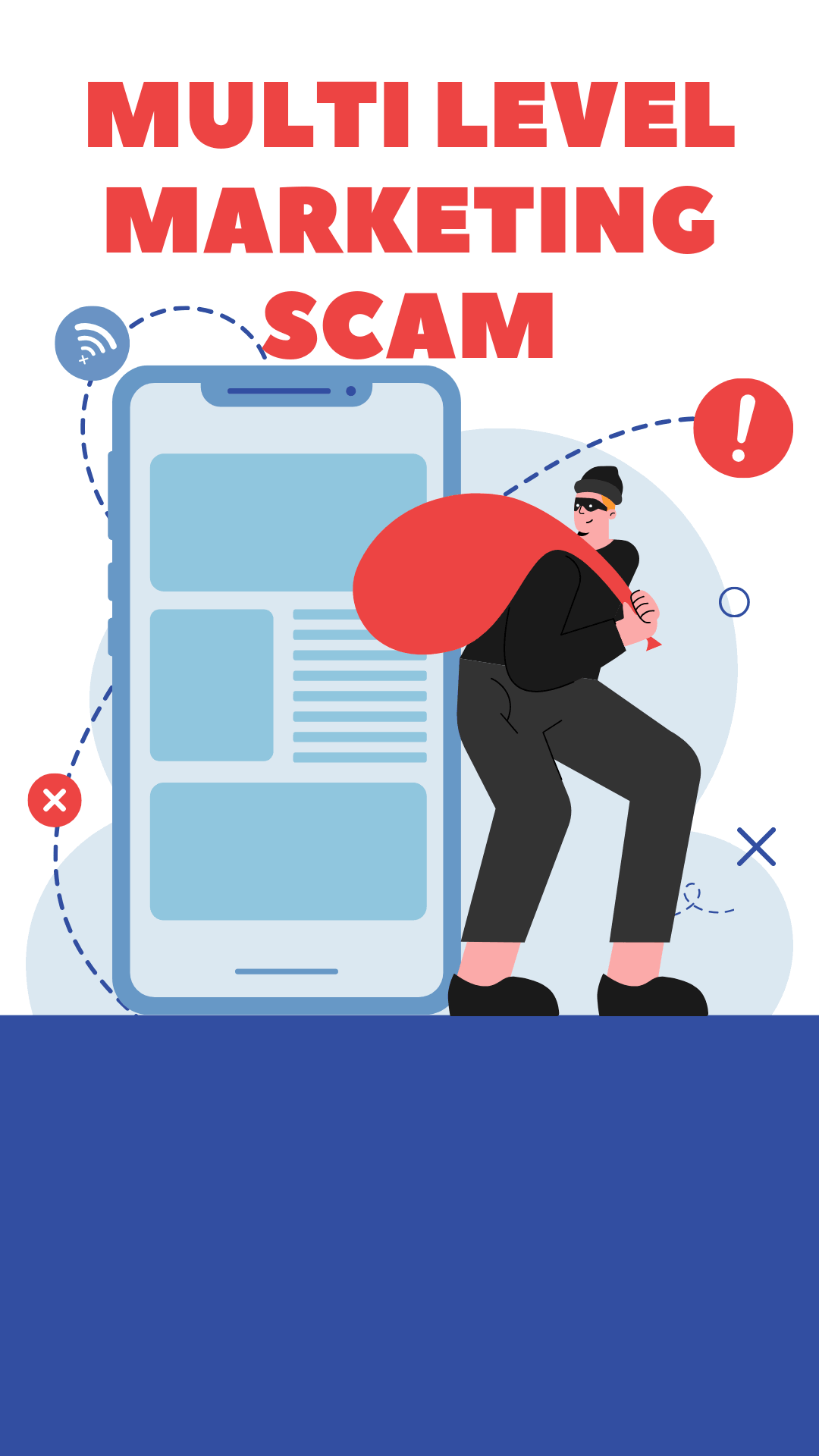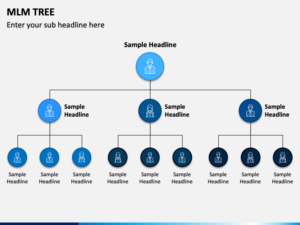SIGNS AND RED FLAGS A BUSINESS IS AN MLM SCAM
The “reality” of MLM scams paints a stark contrast to the often-rosy picture presented by these companies. Here’s a breakdown:
The Dream for multi level marketing scam
- Financial freedom and fast riches
- MLMs entice individuals with the promise of becoming their own boss and earning significant income, often with minimal effort.
- Flexible work schedule
- The ability to set your own hours and work from anywhere is heavily advertised, appealing to those seeking work-life balance.
- Luxurious lifestyle
- Images of exotic vacations and expensive cars are often used to portray the success achievable through their program.
The Reality for multi level marketing scam
- Minimal financial gain for most
- The vast majority of MLM participants make little to no money, often losing money due to initial investments and unsold products. Income disclosure statements, which companies are legally required to provide, often reveal a skewed distribution with a small percentage at the top earning significant amounts, while the majority makes very little.
- Unsustainable practices for multi level marketing scam
- The emphasis on recruitment over actual product sales creates an unsustainable business model. An oversaturation of distributors chasing a limited customer base makes it difficult for everyone to achieve success.
- Strained relationships for multi level marketing scam
- The pressure to sell to friends and family can damage relationships and lead to feelings of manipulation or exploitation.
- Deceptive marketing
- Exaggerated claims about products and income potential can mislead individuals into joining based on false hopes.
- Hidden costs
- Initial investments in starter kits, inventory, and mandatory events add up, further eroding potential profits.
The Takeaway
While some individuals may find success in MLMs, it requires exceptional effort, specific skills, and a significant amount of time and resources. The vast majority, however, are likely to face financial loss, strained relationships, and unfulfilled promises. It’s crucial to approach MLMs with a healthy dose of skepticism and thorough research before getting involved.
Remember, achieving true financial freedom is rarely achieved through quick schemes and often requires dedication to a sustainable and realistic plan.
Summary of an article entitled multi level marketing scam
The world of multi-level marketing can be alluring, promising financial freedom and a flexible work lifestyle. However, the reality can be far less glamorous, with many MLMs bordering on, or outright engaging in, deceptive practices. Before embarking on this path, it’s crucial to be armed with knowledge.
By understanding the structure of MLMs, recognizing the red flags, and prioritizing thorough research, you can make informed decisions. Remember, true financial success rarely comes easy. If an opportunity sounds too good to be true, it probably is.
Investing your time, energy, and resources into legitimate ventures with realistic expectations and a focus on building genuine value holds far greater promise for achieving long-term financial security and personal fulfillment.
Frequently asked questions
What’s the difference between a legitimate MLM and a scam?
It can be difficult to definitively label an MLM as a “scam,” as some operate within legal boundaries. However, legitimate MLMs typically focus on selling high-quality products to end consumers, while scams prioritize recruitment and often involve unrealistic income claims, high upfront costs, and difficulty leaving the business.
Why are MLMs often associated with scams?
The structure of some MLMs inherently creates an environment conducive to deceptive practices. The emphasis on recruitment over product sales makes it challenging for everyone to be profitable, leading to potential exploitation of lower-level members. Additionally, the lack of transparency about income and the use of pressure tactics raise concerns about ethical business practices.
What are some red flags to watch out for when considering an MLM?
Be wary of MLMs that:
- Promise unrealistic income potential.
- Require significant upfront investments.
- Focus heavily on building your downline rather than selling products.
- Make it difficult to leave the business.
- Lack transparency about average distributor earnings.
- Use pressure tactics or emotional manipulation to recruit.
How can I protect myself from getting involved in an MLM scam?
Do your research! Investigate the company, its products, and its business model. Look for independent reviews, consult the FTC website, and avoid making hasty decisions based on emotional appeals or unrealistic promises. If something seems too good to be true, it probably is.






